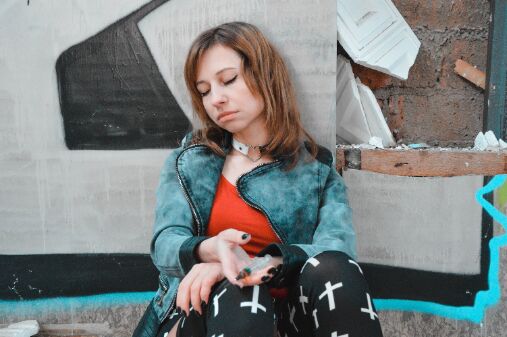Escaping addiction
It is time parents perceive drug addiction as a treatable chronic disease, and empathetically convey the same to their symptomatic children

I am concerned that my young teenage son may be into drugs. I find a few signs but am not certain since I have had no exposure to drugs ever. What should I be looking for when it comes to addiction or drug use in him?
Congratulations for taking the first step towards trying to understand what may be going on in your child's life, through the most important tools of knowledge, empathy and understanding.
Drugs are prevalent in most parts of the world, and are quite rampant these days in our country as well. In fact, according to some studies, there has been an upsurge in drug use among youth of our country during the pandemic.
Addiction is not a choice. It is a treatable, chronic medical disease involving complex interactions among brain circuits, genetics, environment, and an individual's life experiences. It pertains to a compulsive, chronic, physiological or psychological need
for a habit-forming substance (drug) or an activity that has harmful physical, psychological, or social effects. It typically causes well-defined symptoms (such as anxiety, irritability, tremors, or nausea) upon withdrawal or abstinence.
Common signs
Physical
❋ Eyes: Pinpoint pupils in opioid addiction, red bloodshot eyes in cannabis, watery eyes;
❋ Nose: Frequent runny nose in cocaine and inhalant addiction;
❋ Motor incoordination leading to falls and tripping;
❋ Lethargy;
❋ Smell on clothes or breath;
❋Eating and weight fluctuations: Eating ravenously at one time while ignoring food at others;
❋ Sleep changes: Irregular sleeping patterns or difficulty falling asleep;
❋ Skin: Marks on skin, injection, falls, bruises, burns;
❋ Tremors or seizures;
❋ Poor personal hygiene and generalised deterioration in self-care.
Behavioral
❋ Changes in interests and activities
❋ Hanging out with the "wrong crowd";
❋ Less interaction with family
❋ Poor performance in work or school;
❋ Lying, stealing, dishonesty and blackmailing;
❋ Legal issues;
❋ Secretive behaviour;
❋ Self-isolation;
❋ Financial issues.
Psychological signs
❋ Personality changes;
❋ Mental illnesses like depression and anxiety;
❋ Paranoid, fearful or obsessive thoughts;
❋ Negative self-image, body image issues and eating disorders;
❋ Suicidal thoughts and attempts;
❋ Lack of motivation and feeling of apathy.
Common drugs used by the youth in our country
❋ Cannabis and its variant – for example, 'hash', 'marijuana', 'bhang', 'ganja'
❋ Alcohol
❋ Tobacco
❋ Cocaine
❋ LSD
❋ MDMA
❋ Opioids – Heroin/ Brown Sugar
❋ Benzodiazepines
❋ Inhalants (huffing)
❋ Painkillers
What can you do as a parent?
❋ Try to stay abreast with what is happening in your chil d's life;
❋ Forge strong communication at home;
❋ Speak openly about drug addiction not with disdain but about it being a potential mental health issue;
❋ Be empathetic and not reprimand;
❋ Enquire about whereabouts and funds usage;
❋ Approach gently;
❋ See a de-addiction mental health specialist.
Send your questions to [email protected]



